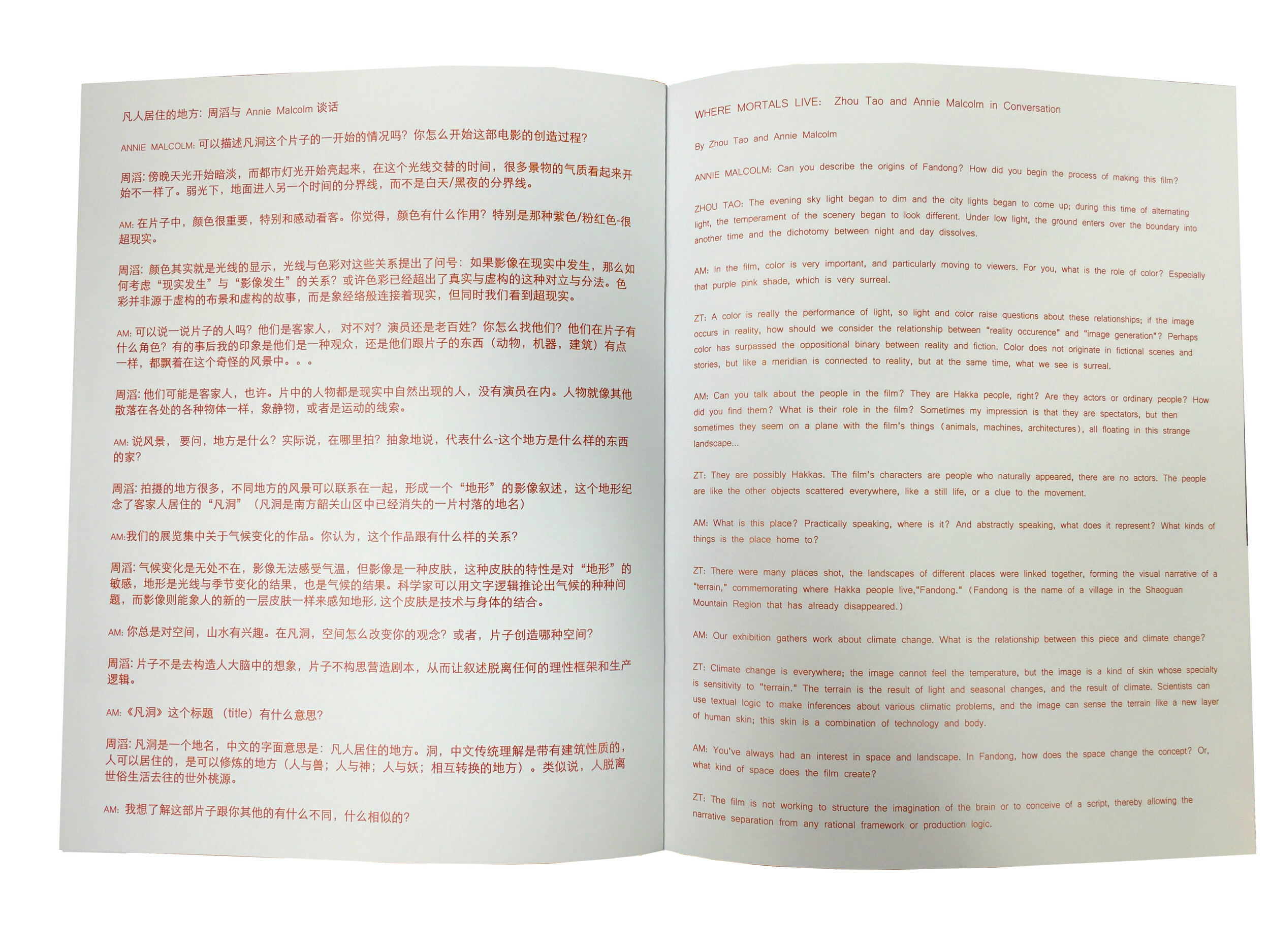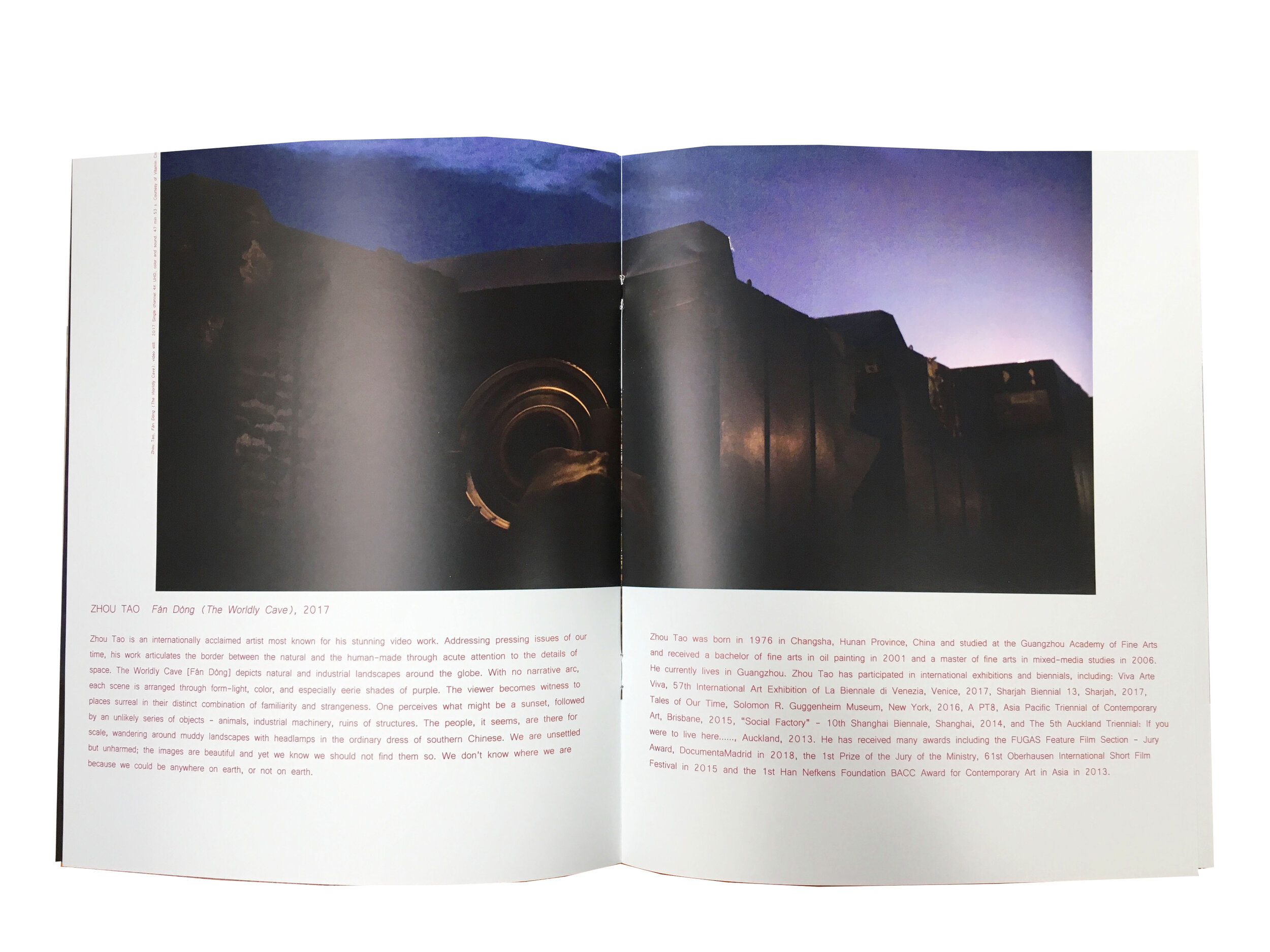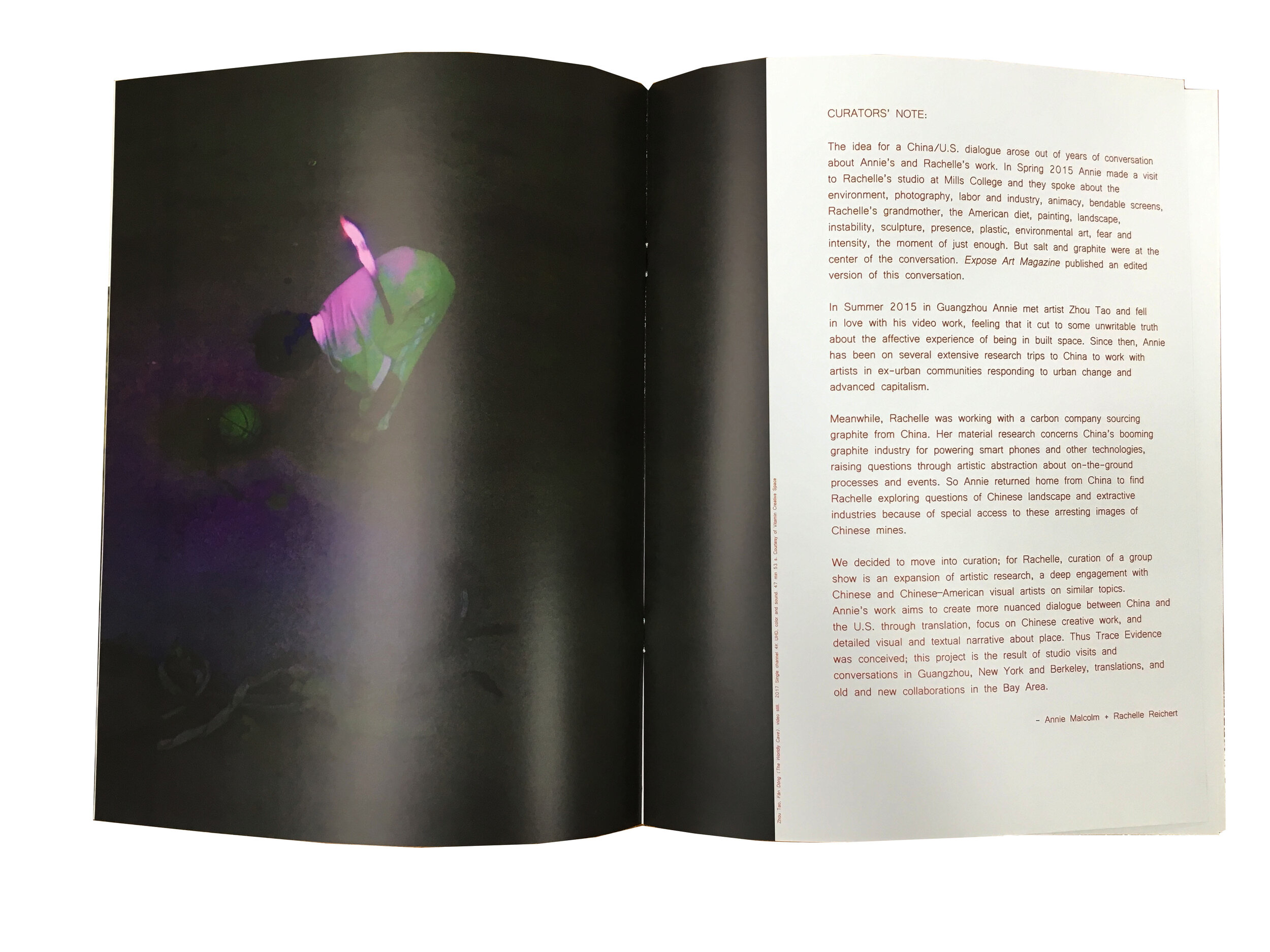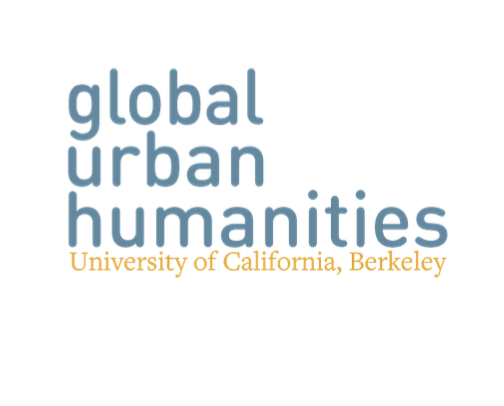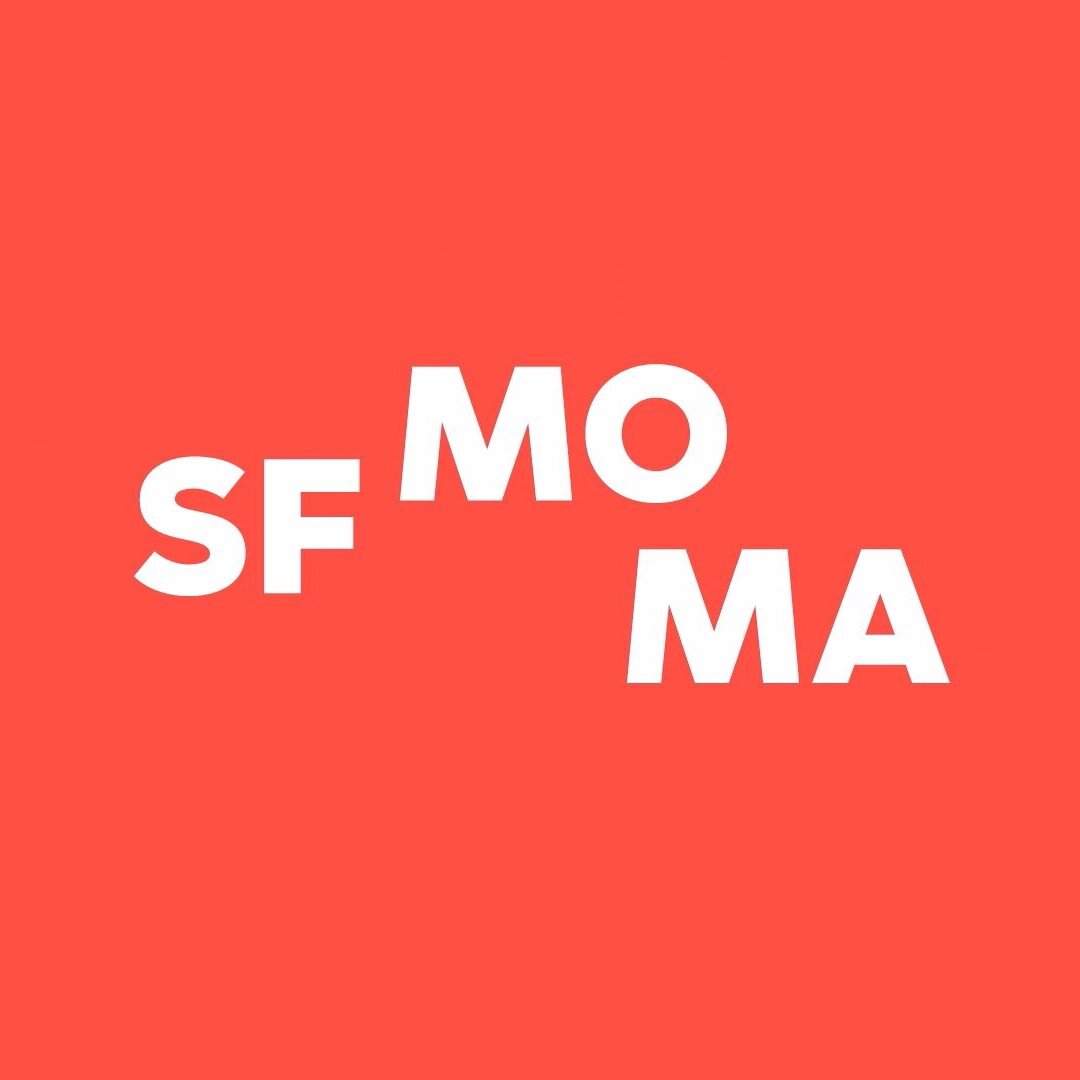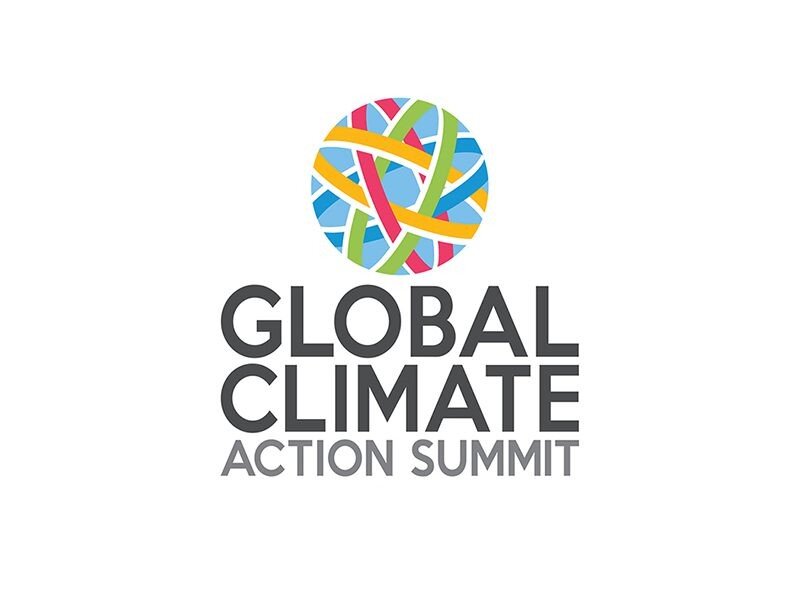
Trace Evidence
A CROSS-CULTURAL VISUAL DIALOGUE ON CLIMATE CHANGE
“Climate change is everywhere; the image cannot feel the temperature, but the image is a kind of skin whose specialty is sensitivity to “terrain.” The terrain is the result of light and seasonal changes, and the result of climate. Scientists can use textual logic to make inferences about various climatic problems, and the image can sense the terrain like a new layer of human skin; this skin is a combination of technology and body.”
— Zhou Tao
![Zhou Tao. The Worldly Cave [Fán Dòng] 2017, video still. Courtesy the artist and Vitamin Creative Space](https://images.squarespace-cdn.com/content/v1/5e6d5c853a662d3be0973b12/1624578343892-VDB2RKP38M24ITPBC289/Trace+Evidence+-+exhibition+image.jpg)
Zhou Tao. The Worldly Cave [Fán Dòng] 2017, video still. Courtesy the artist and Vitamin Creative Space
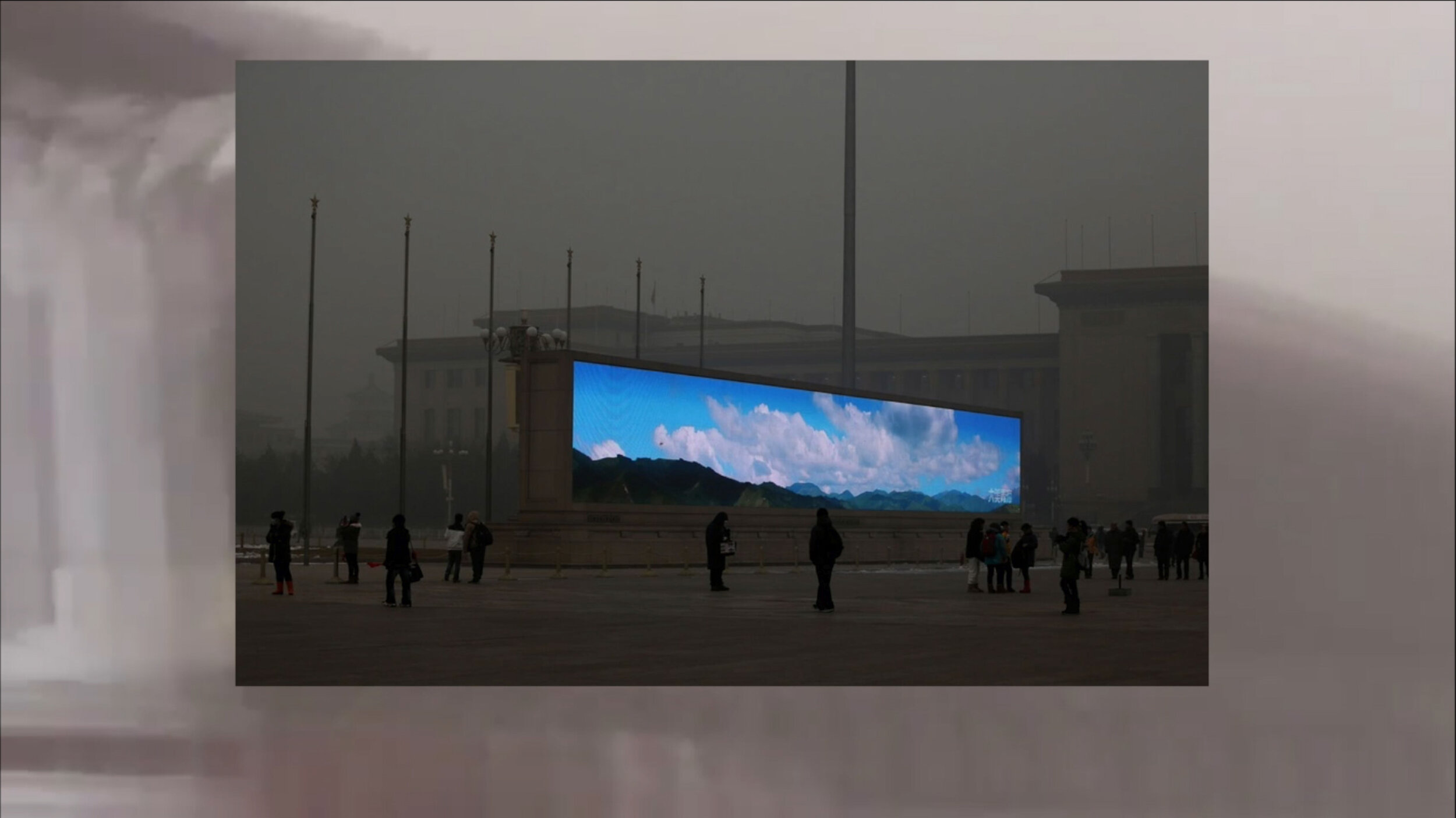
Mo Kong, Sea, Sun and Think the Shadow (2016) - video still. Single-channel HD video 11 min 11 sec
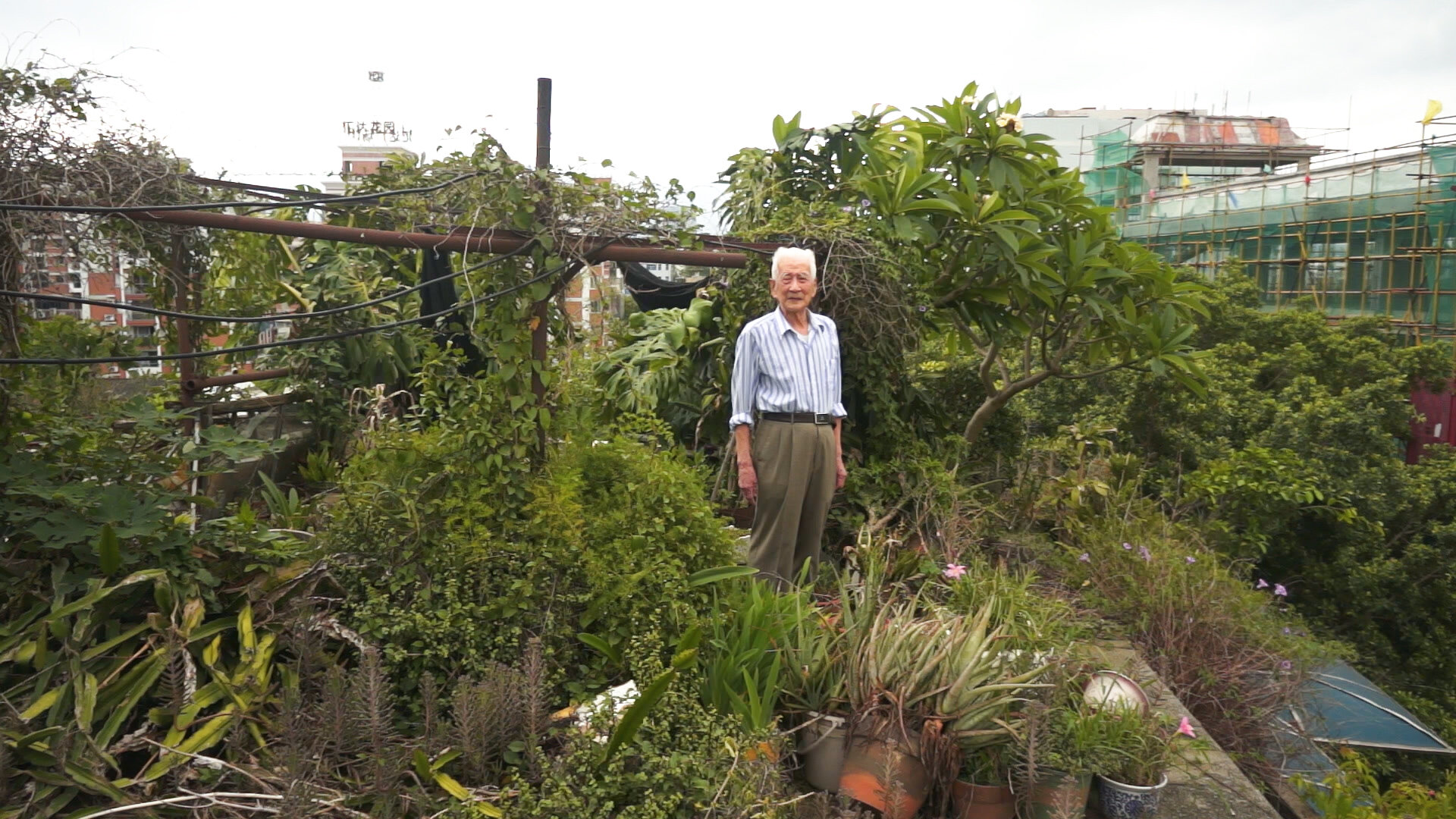
Connie Zheng, , Notes on fluorescence (video still). 2018 Single-channel HD video 13 min 19 sec
![Zhou Tao. The Worldly Cave [Fán Dòng] (video still). 2017. Single channel 4K UHD, color and sound. 47 min 53 sec.
Courtesy the artist and Vitamin Creative Space](https://images.squarespace-cdn.com/content/v1/5e6d5c853a662d3be0973b12/26e2ccf3-2324-4efd-87d5-2c3bfc92f319/1.jpeg)
Zhou Tao. The Worldly Cave [Fán Dòng] (video still). 2017. Single channel 4K UHD, color and sound. 47 min 53 sec. Courtesy the artist and Vitamin Creative Space

viewers in media gallery
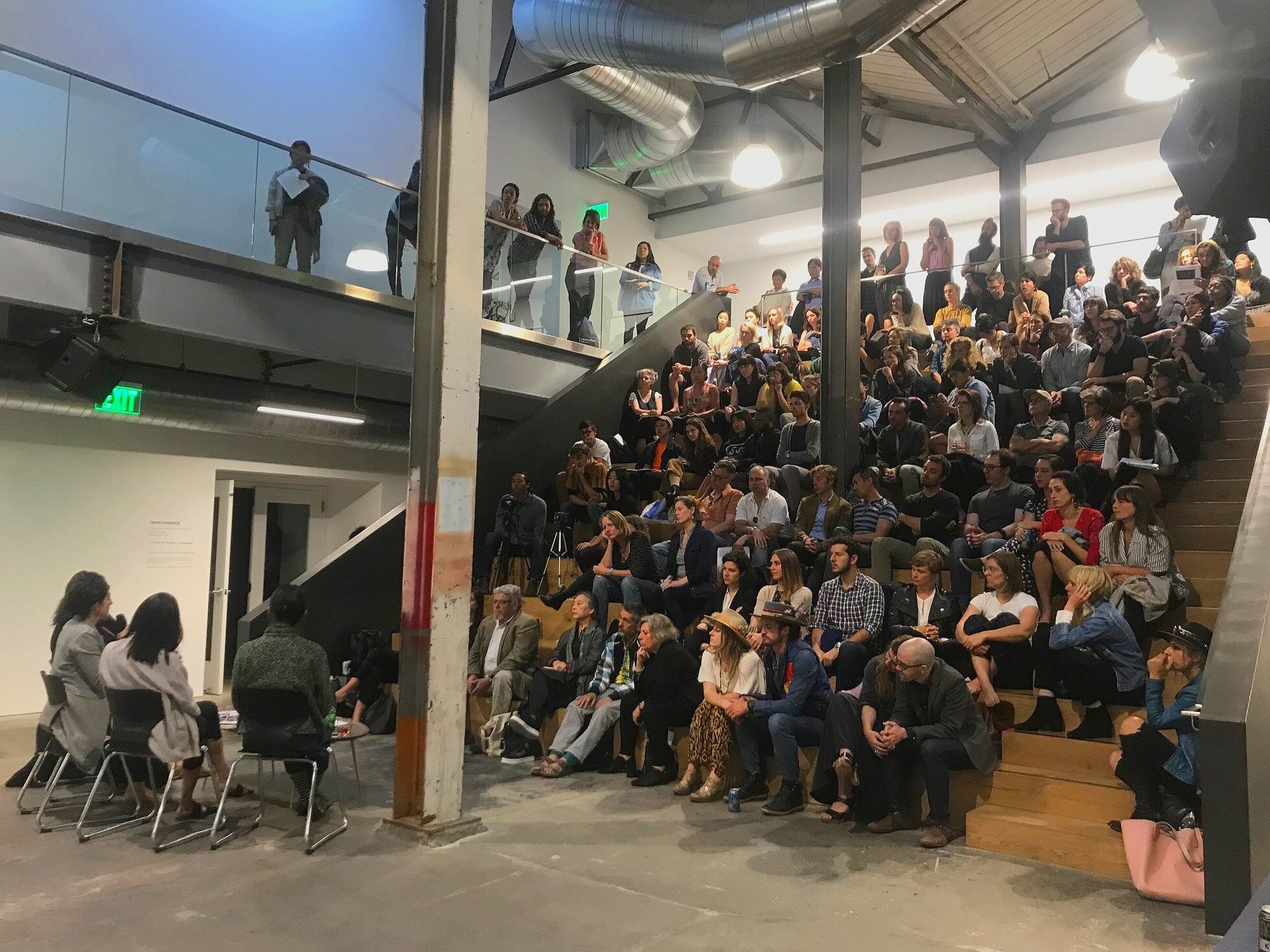
PUBLIC PROGRAM: PANEL DISCUSSION Global China: Cross-Cultural Conversation on The Work of Art in the Age of the Anthropocene Minnesota Street Project, San Francisco. 2018

PUBLIC PROGRAM: PANEL DISCUSSION Global China: Cross-Cultural Conversation on The Work of Art in the Age of the Anthropocene Minnesota Street Project, San Francisco. 2018
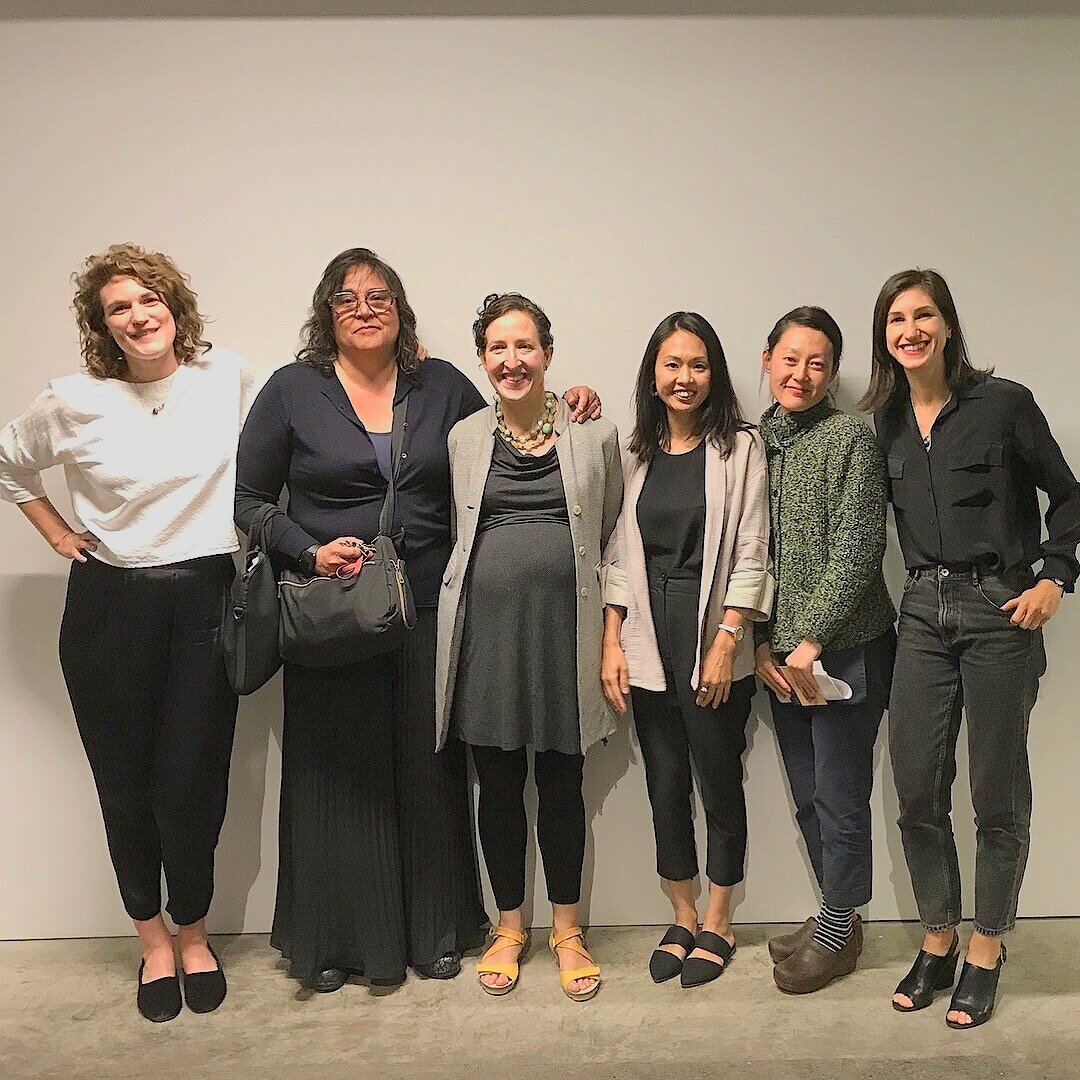
PUBLIC PROGRAM: PANEL DISCUSSION Global China: Cross-Cultural Conversation on The Work of Art in the Age of the Anthropocene Minnesota Street Project, San Francisco. 2018 From left to right: Annie Malcolm, Kim Anno, Rachel Stern, Winnie Wong, Nancy Lim, Rachelle Reichert
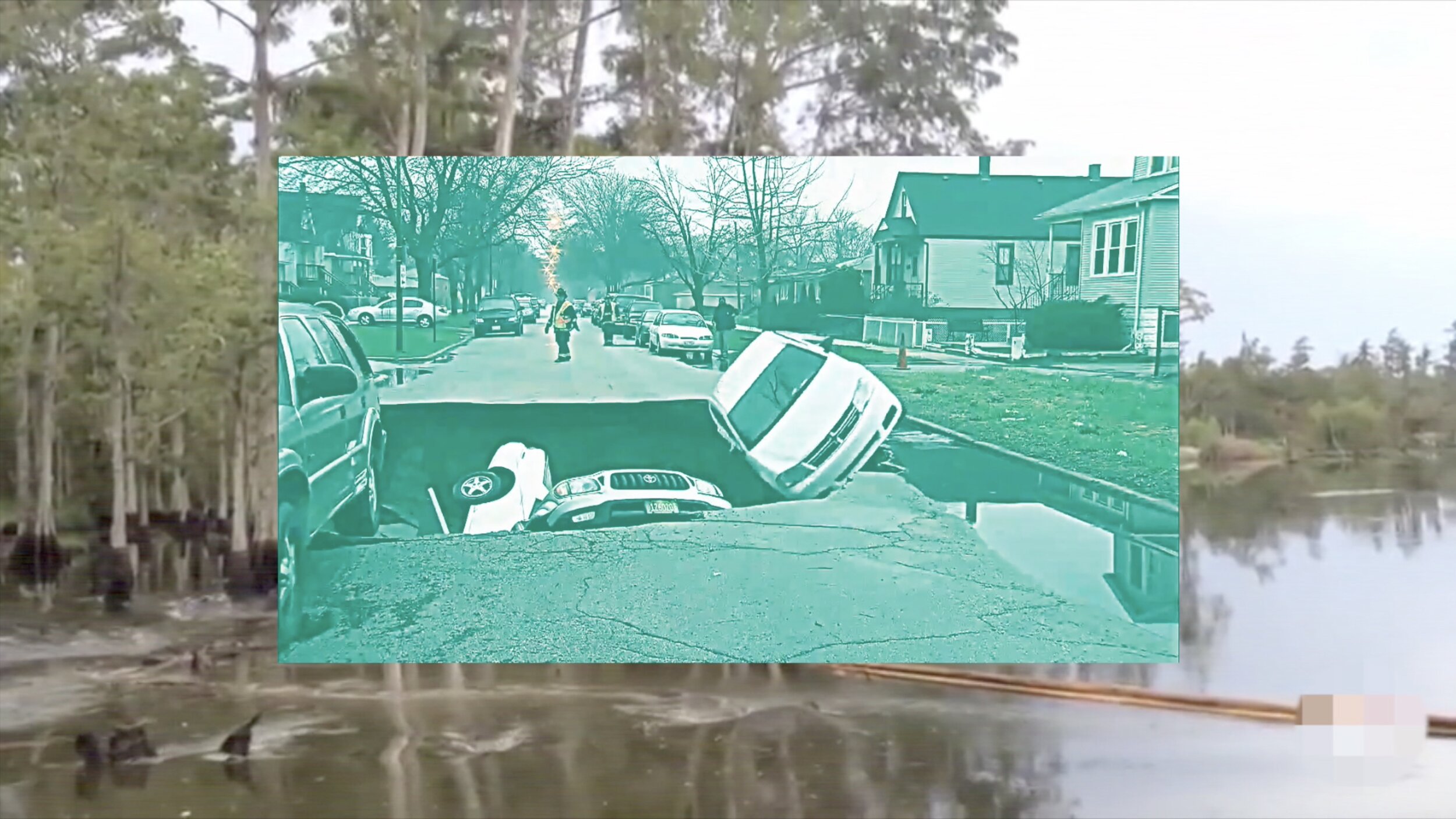
ABOUT TRACE EVIDENCE
A curatorial project by Annie Malcolm and Rachelle Reichert
Exhibition September 8–29, 2018
Minnesota Street Project, San Francisco, California
Trace Evidence is an exhibition and a panel discussion at Minnesota Street Project, in partnership with SFMOMA Public Dialogue, in which the curators will convene visual artists from China and the U.S. who are considering issues of environmental change focused on China. Trace Evidence will take place in San Francisco in September 2018, during the Global Climate Action Summit, and is affiliated with the GCAS programming. We are interested in interrogating the work of art as a platform for cross-cultural conversation about climate change.
Exhibition
The idea for a China/U.S. dialogue arose out of a conversation between Malcolm and Reichert. After several extensive research trips to China to work with artists in ex-urban communities responding to urban change and advanced capitalism, Malcolm returned home to find Reichert exploring questions of Chinese landscape and extractive industries because of special access to images of graphite mines in China. Having published a conversation based on a studio visit Malcolm made of Reichert’s studio at Mills College several years ago, the two decided to move the conversation thematically into China and climate change, and practically into curation. Reichert’s material research concerns China’s graphite industry, and her practice raises questions through artistic abstraction about on the ground processes and events; for her, curation of a group show with Chinese and Chinese–American visual artists is an expansion of her artistic research, a deep engagement with native artists on the same topics. Malcolm’s work aims to create more nuanced dialogue between China and the U.S. through translation, focus on Chinese creative work, and detailed narrative, co-written with Chinese interlocutors, about place. Thus Trace Evidence was conceived.
Americans gaze over to China and see the physical conditions produced by late capitalism magnified because of the scale and speed of development. China’s processes of industrialization and urbanization have degraded their environment in parallel fashion to US industrialization but, due to its rapid progress, are uniquely perceptible.
Thinking with Timothy Morton, we conceive of climate change as a hyperobject (Morton 2013): its entirety can never be seen, yet it affects everything. How are artists taking the visual elements of climate change, pollution, and extraction and making them accessible? How are artists trying to see this thing that is impossible to see but felt everyday? Climate change is a form of slow violence (Rob Nixon 2013), harming and displacing people, enacting violence at a slower speed than violence usually occurs; climate change forces us to rethink timescales.
The work we will show in this exhibition deals with these issues on different levels of directness. Some of the work offers the opportunity to meditate on the questions, think scale, and be in a sensible relationship to place, landscape and environment; other works critically expose to the viewer the violence of extraction and the factors at work in climate change. By exhibiting both American and Chinese artists’ work, this exhibition will look from the outside while addressing the area from within.
Rachelle Reichert is a visual artist living and working in the San Francisco Bay Area. For Reichert, curation is a part artistic research. This exhibition grew out of her research of Chinese graphite mines, the source of graphite used in her artworks. Her drawings depict abstract shapes from up-to-date satellite images of the mines. Working the graphite to reveal its material capacities through the visual language of abstraction, she explores the cost of green technologies and industries.
Annie Malcolm is a sociocultural anthropologist whose work explores how Chinese artists respond to environmental and urban change. Currently writing an ethnographic monograph about art villages in outer Beijing and Shenzhen, she has worked in China over the last five years in research, installation, and translation capacities. She is connected to the Chinese contemporary art world through her fieldwork and to American art worlds through her academic work.
PANEL DISCUSSION
Global China: A Cross-Cultural Conversation on The Work of Art in the Age of the Anthropocene A panel at Minnesota Street Project, in conjunction with the exhibition Trace Evidence September 11th, 2018, 6pm
In affiliation with the Global Climate Action Summit
In partnership with SFMOMA's Public Dialogue
Trace Evidence's public program will be a panel that takes place during the Global Action Summit in San Francisco. The panel will be affiliated with the summit, bringing together a unique mix of art world and climate change voices to have a conversation about the work of visual representation in understanding and taking action on climate change. The exhibition brings together artists from the U.S. and China to create a platform for a new kind of cross-cultural exchange on ways of seeing the slow violence of global climate change, asking what do art and cross-cultural interaction offer in terms of re-orienting our sense of what's happening, what's possible, and what's needed? Panel participants will include artists and scholars from diverse geographic and disciplinary backgrounds, and will be moderated by Nancy Lim, assistant curator of painting at SFMOMA.
video produced by the United Nations Foundation
Trace Evidence curators were interviewed to appear on Facebook live of events and discussions held for the Global Action Climate Summit in San Francisco, CA.
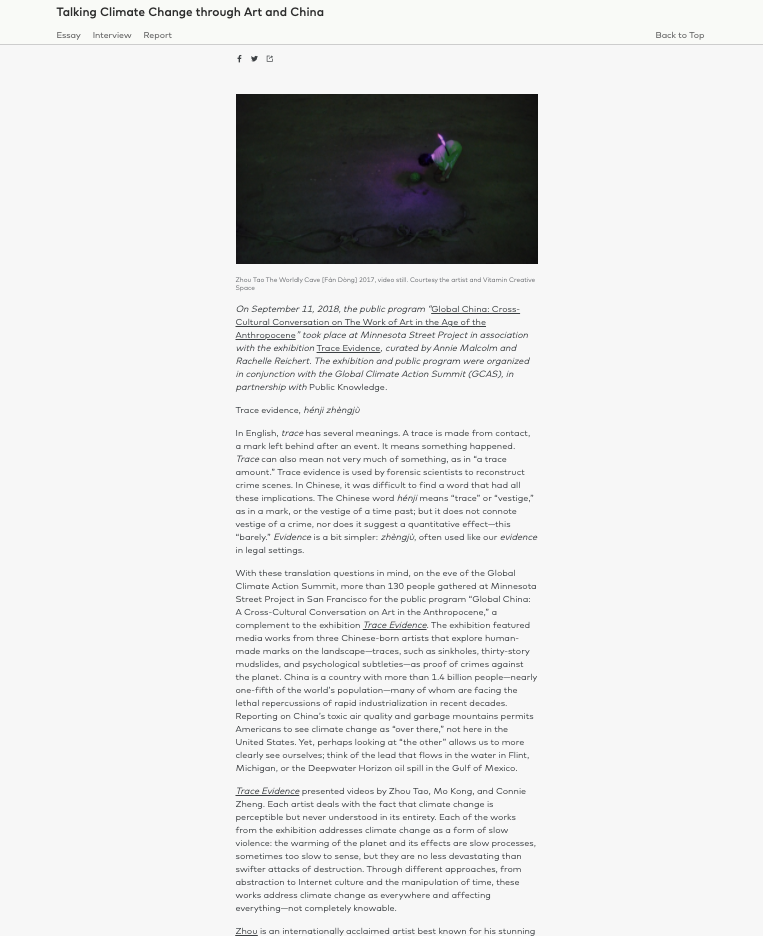
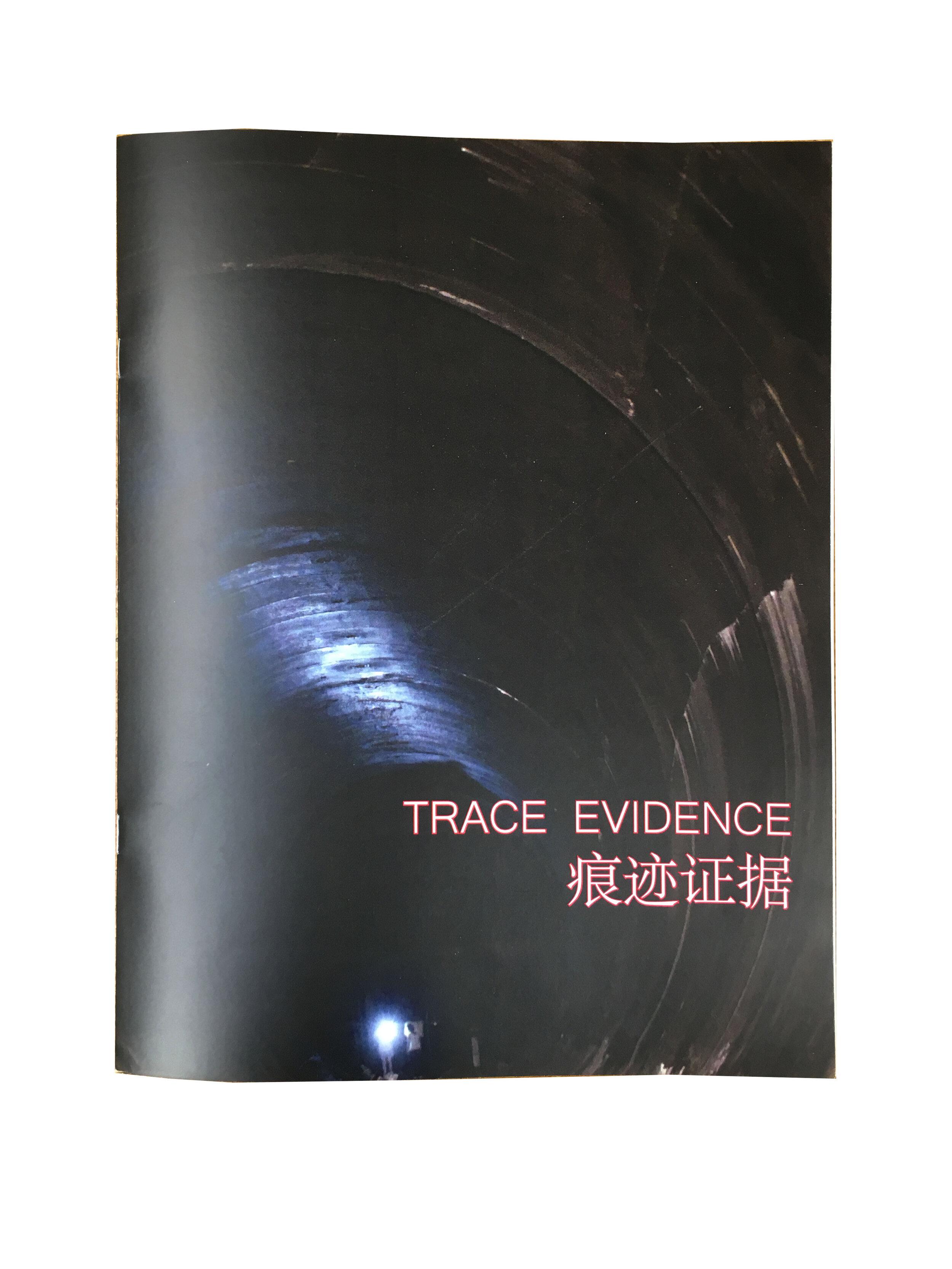
Catalogue for Trace Evidence Exhibiton
